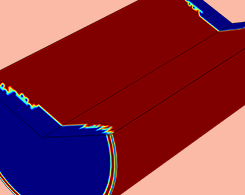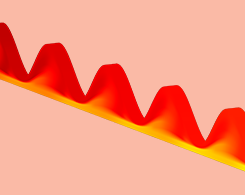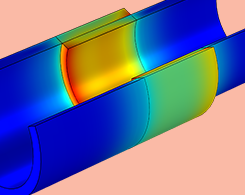Structural & Acoustics Blog Posts

Modeling Phase Change in a Thermosiphon
A guest blogger from Noumenon Multiphysics writes about modeling phase change in a thermosiphon, a device that has been keeping houses warm since the 1800s.

Advancing Additive Manufacturing with Sequential Simulations
In some ways, additive manufacturing is like sewing or weaving. We talk to a professor of additive manufacturing about how sequential simulations can be used to analyze and optimize the process.

Analyzing Triaxial Testing Methods for Geomechanics
Triaxial testing of soil is important when determining the structural stability of a tunnel, dam, or building. Geomechanics simulation can help ensure that triaxial testing methods are up to par.

Acoustic Topology Optimization with Thermoviscous Losses
A guest blogger from GN Hearing discusses including thermoviscous losses in the topology optimization of microacoustic devices, such as hearing aids, mobile phones, and metamaterial geometries.

Comparing Static and Dynamic Wall Heat Exchangers with Simulation
We compare the performance and efficiency of static and dynamic compact wall heat exchanger designs using fluid-structure interaction.

Analyzing Vehicle Suspension with Multibody Dynamics Modeling
How much damage can a pothole do to a car? Automotive engineers can set up lumped mechanical systems in COMSOL Multiphysics® to analyze vehicle suspension technology.

Optimizing the Interference Fit Between 2 Pipes with Structural Analyses
The interference fit between 2 pipes can’t be too tight or too loose. Like the porridge in the “Goldilocks and the Three Bears” story, it has to be just right.

How to Model Roller Bearings in COMSOL Multiphysics®
Roller bearings are one of the most commonly used industrial components, found in gearboxes, conveyors, motors, and rolling mills, among other devices. Learn how to model this part in COMSOL®.
